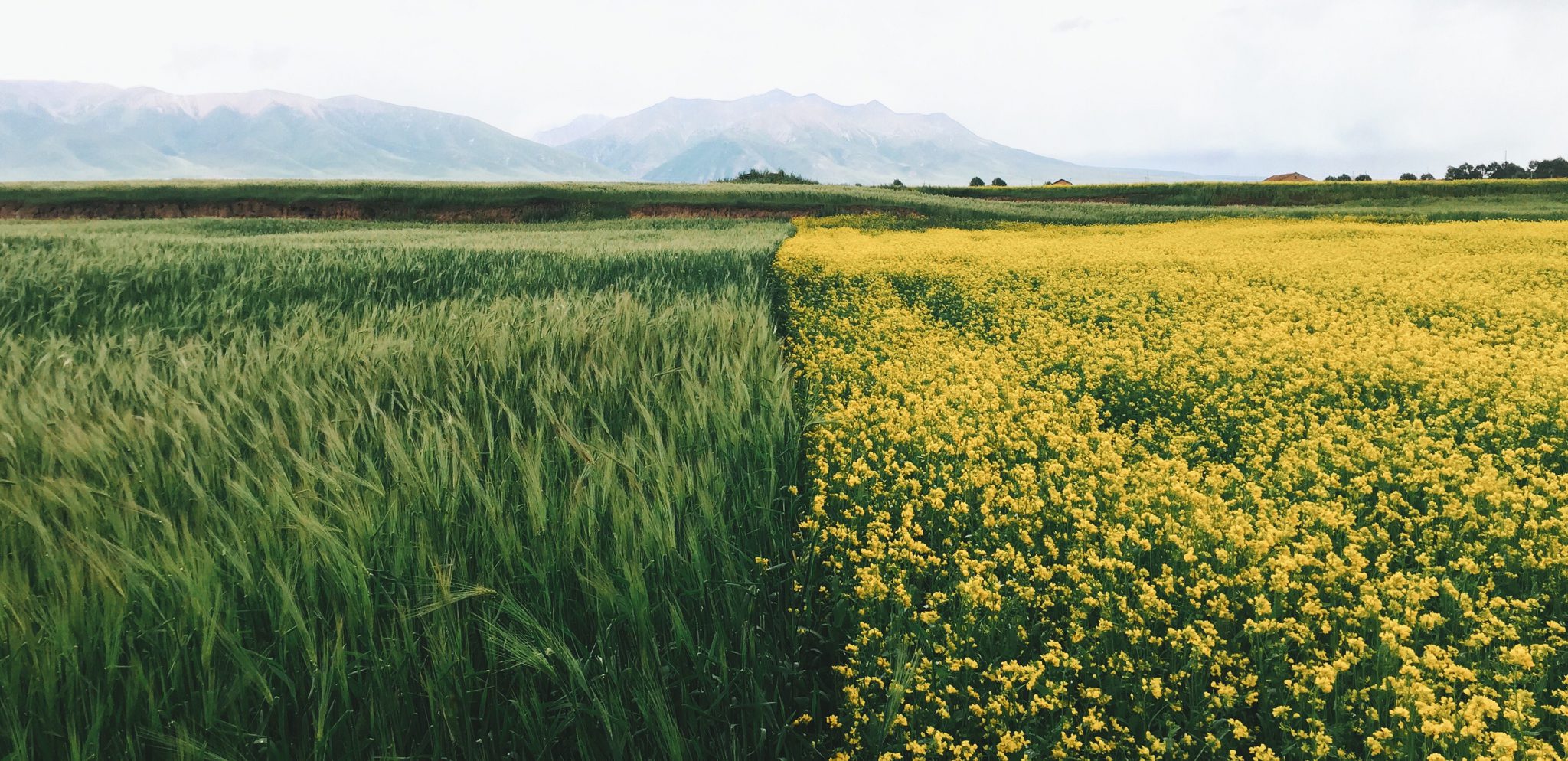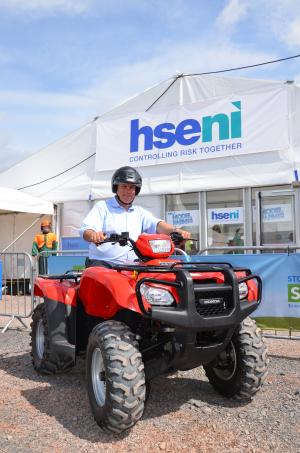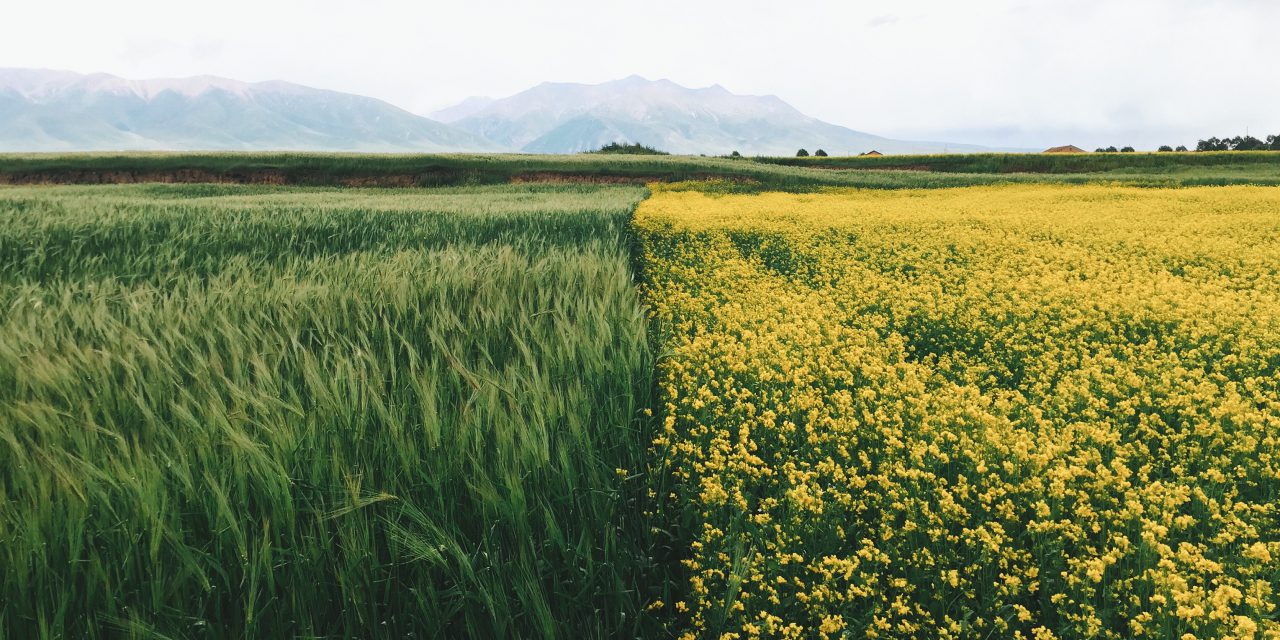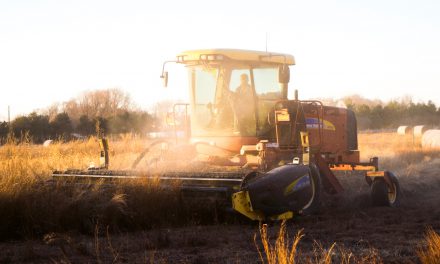Farmers in and around Ballymena are using Quad bikes more and more. On the farm they are useful for nipping from one field to another and, lets face it, they are great fun. But, as with all machinery on the farm, they need to be used safely.

Photo by Loren Gu on Unsplash
Farming Ballymena – Quad Bike Safety
The Department of Agriculture, Environment and Rural Affairs has published the following safety advice. To view more please click here.
Common hazards
The main causes of serious or fatal injury associated with Quad bikes are:
- being thrown off during vehicle overturns or after loss of control
- collisions with structures, for example trees or other vehicles
- being trapped/asphyxiated under an overturned machine
- pedestrians being struck or run over by Quad bikes
Other factors can contribute to the causes of accidents and injuries, for example:
- lack of formal operator training and/or experience
- incorrect/lack of appropriate head protection
- excessive speed
- age of the operator
- carrying a passenger
- unbalanced loads or overloading
- tipping on a bank, ditch, rut or bump
- loss of control on a steep slope combined with other factors like poor ground or load conditions
- towing excessive loads with un-braked equipment
- poor maintenance of the vehicle, such as faulty brakes or incorrect tyre pressures

Via The Department of Agriculture, Environment and Rural Affairs website
Personal protective equipment
Quad bikes are not fitted with either a cab or roll bar, so your only protection is what you wear. In particular, head protection is vital. You should always wear a helmet when riding a Quad bike. Many Quad bike fatalities have been caused by head injuries and helmets would almost certainly have prevented most of these deaths. All helmets should be manufactured and tested in accordance with the current relevant EN/BS standard, have a chinstrap and be capable of being used with suitable eye protection.
Clothing
Wear clothing that is strong and covers your arms and legs. Gloves are useful for protection and handlebar muffs can help to keep hands warm in cold weather for good control of the Quad. Wear sturdy, ankle-covering footwear, for example, boots or wellingtons that are strong, supportive and have good wet grip. Protect your eyes from insects and branches with either a visor or goggles.
Roll-over protective structures (ROPS)
HSENI’s current advice is that roll-over protective structures (ROPS or crush protection devices) are not recommended for Quad bikes.
Research has shown that they may lead to an increased risk of injury in the event of an overturn by either preventing the operator from separating from the machine or striking the operator as the machine overturns. Lap straps or seat restraints should not be fitted as they prevent the rider from moving on the Quad to keep it properly balanced. Lap straps or seat restraints would be potentially lethal without a full cab or roll cage. Weather cabs on Quad bikes restrict a rider’s ability to jump clear in an overturn – the rider is likely to be crushed within the cab unless it is strong enough to withstand the forces involved.
Children and Quad bikes
Quad bikes are not toys and many children have been involved in serious and fatal accidents caused by them.
Only properly trained people, within the recommended age range, (the minimum for a farm type Quad is usually 16 years), should be allowed to ride a quad. And, they must wear the correct helmet and be adequately supervised.
Passengers, including children, must never be carried on quad bikes.
Please share this with anyone who you know who uses a quad bike on their farm. Share the conversation from Ballymena Today.




